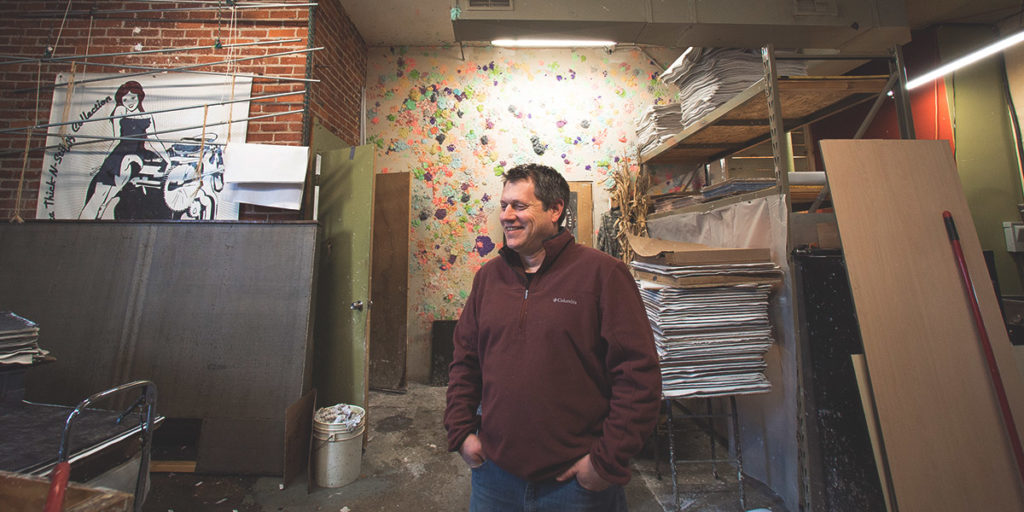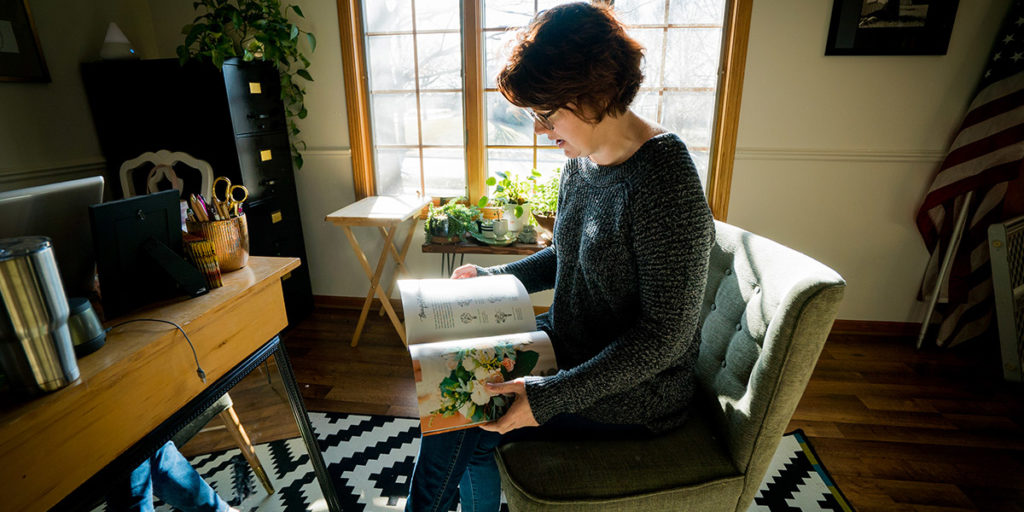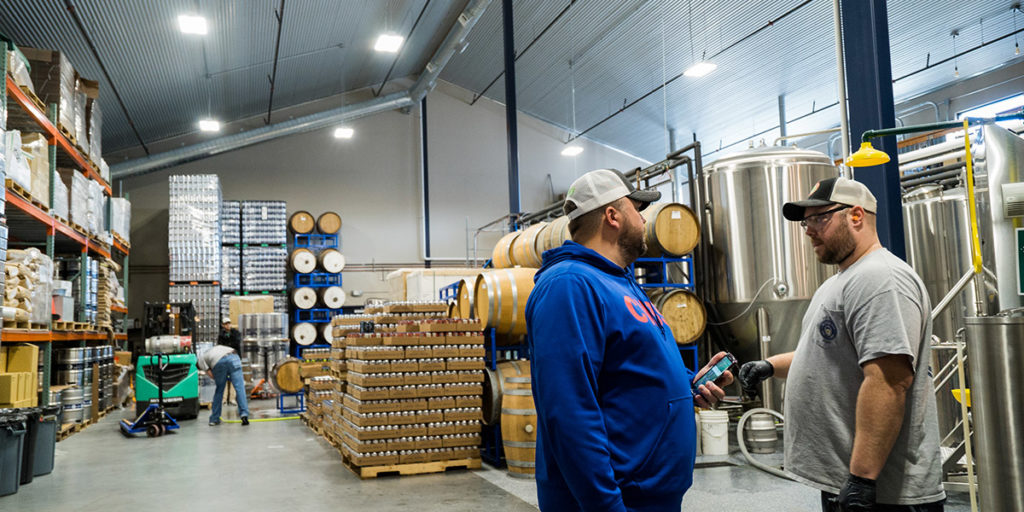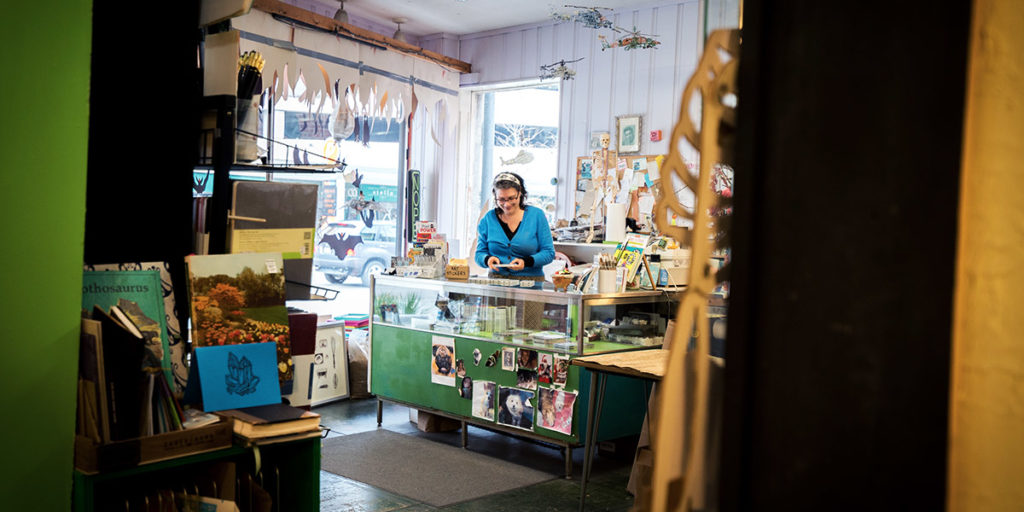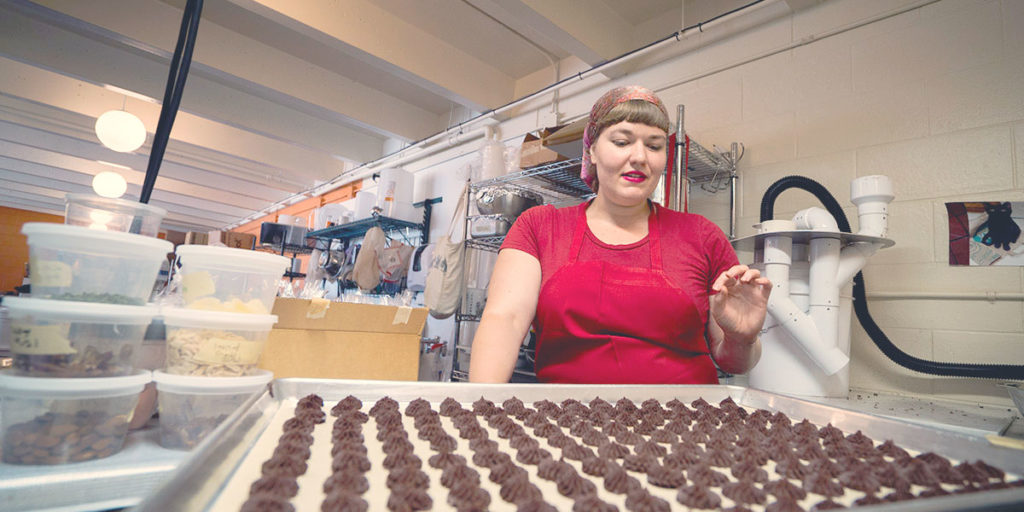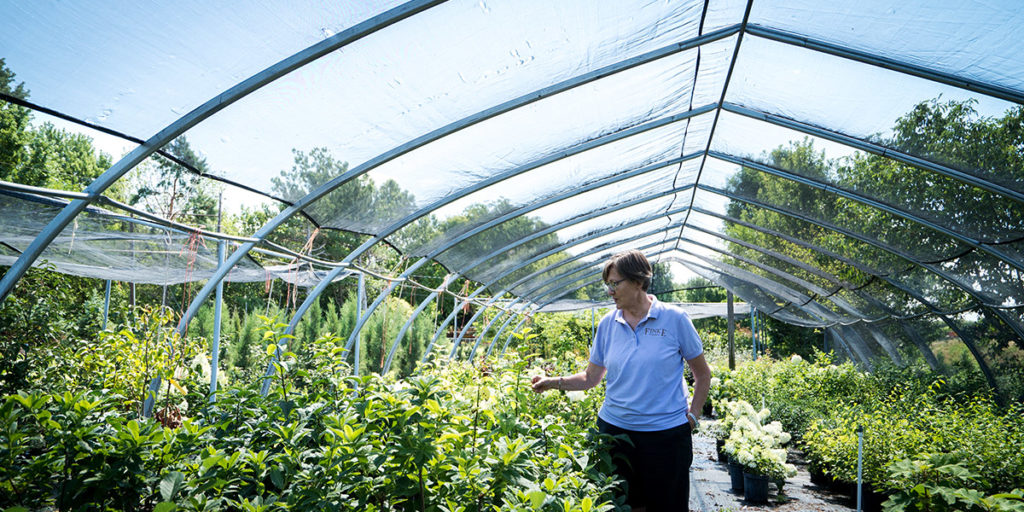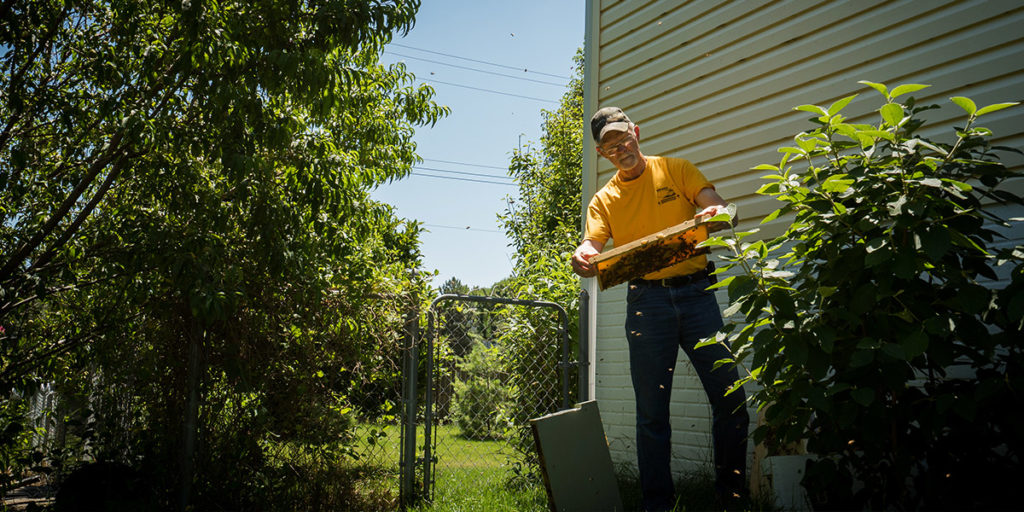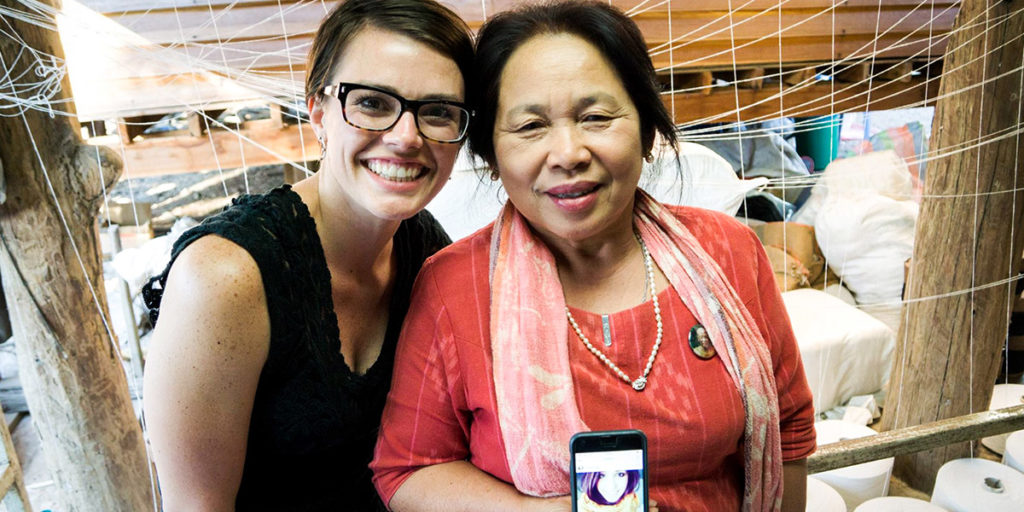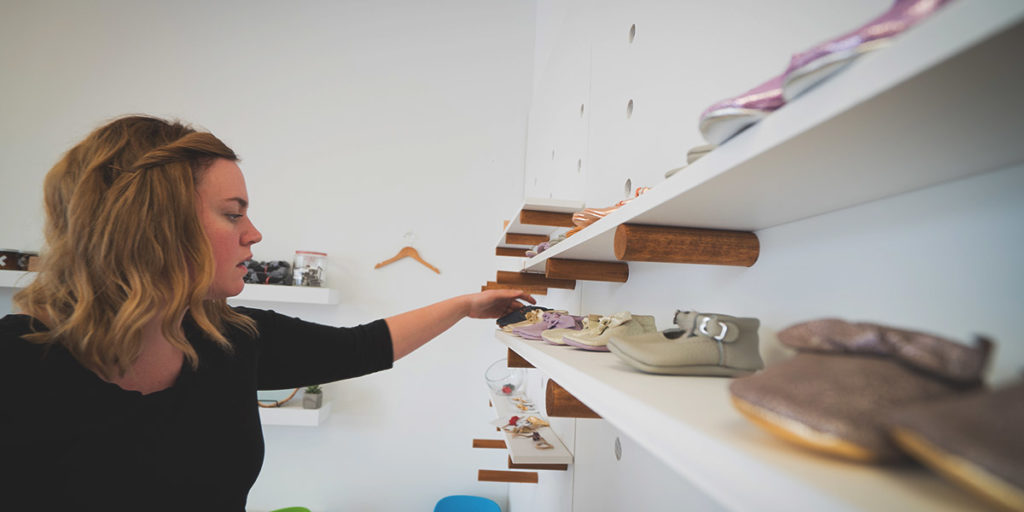
It’s a Tuesday and Shala Hruska has one thing on her agenda: sew.
Well, not quite one thing. There’s picking up the kids from preschool, dinner, bedtime, ect., but when she’s in the studio she’s focused on her business, and today that means sewing.
Shala has owned and run her hand-made baby shoe shop, Belle and The Bear, for just over four years. It’s a job that she said she “fell into,” but also one that she’s been intentional about growing in a way that’s true to herself and her customers.
Back up a few years to before Shala started her business and her days were a jumble of diapers, feedings and keeping a close eye on her twin baby girls, Alice and Cora. Life was busy, chaotic and a bit overwhelming, but as Shala started to get the hang of being the mother of twins she came across a problem: baby shoes.
All the shoes on the market were either uncomfortable, unattractive, impractical or just too expensive. So, Shala decided to try making some shoes for herself. She took a pink suede blazer that was a thrift store find, made her own pattern and sewed her first pair of baby moccasins.
Getting the shoes to fit right took some time, but as soon as her girls started wearing the shoes she got comments and questions about where she’d bought them. She realized that she wasn’t the only one who had a problem with baby shoes, and she decided to start selling her shoes on Etsy.
Shala began sewing during nap time, late into the night and anytime she could to get her shop up and running. She didn’t expect it to grow much bigger than Etsy, after all, it was just a fun hobby and a way to make a little extra money on the side, right?
Shala wasn’t a business major and didn’t have any huge aspirations of one day owning a shop. In fact, she laughed about the fact that in college she had a million ideas but no specific major until her senior year in college – and she basically picked whatever major would get her to graduation.
So when her baby shoe business took off she was a little shocked. Sure, she thought her designs were pretty darn cute and she loved the shoes for her own girls, but she was amazed by the support and attention she was suddenly getting from the community. There were some big fans of Belle and The Bear, and some big fans of Shala and that felt good.
Despite the chaos of starting a business and caring for her family, Shala loved the fact that she could have one foot in motherhood and the other in the small business world. She expanded her Etsy site into a full-scale website and in 2015 she opened a brick and mortar shop entirely devoted to kids footwear.
Her shop carried her own designs as well as other brands that she knew of and liked. Having a shop was fun. It gave her an opportunity to interact with her customers, offer shoe fittings and it was a space for her designs to be seen and sold.
But it was also hard. Running a shop added another layer of complexity to her business and family life. Shala’s schedule was fuller and her time at home was in short supply.
After a year of running her shop, Shala decided it was time to close and exclusively sell online and wholesale. It was sad, because it felt like the store had failed in a way, she said.
But Shala didn’t close her store because shoes weren’t selling, she closed it because her brand of shoes were selling better than the other brands she carried. Opening and closing her shop showed her what she really liked about her business and what the community valued as well.
“Our shoes is us. That’s what I love and that’s what other people love,” she said. “I thought my dream was to own a shop, but what I love to do is design and make shoes and to have my own brand versus just my own store.”
Plus, Shala said she gets to spend her Saturdays on the soccer field with her kids instead of in the shop, and that feels good.
It’s not that running a business or even her full-time job as a wife and mother have become any easier, but closing her shop allowed her to run her business on her terms. Shala said that’s one of the things she’s learned over the last four years as a business owner – to trust her gut when it comes to her brand…and her story.
Shala didn’t think her story would involve sewing baby shoes, having twin girls or even living in Lincoln for that matter. To be honest, she didn’t know where her story was going to take her. She didn’t realize how much she’d love being a maker, or how connected she’d be with the maker community in Lincoln. She didn’t even anticipate how much she’d love the differences between her two girls and the life and love they bring to her story.
Shala might say that she just “fell into” running a business, but that’s not really true. Being an owner, a maker, a mother and a wife takes work, it doesn’t just happen. Her story is one that she’s built on her passions and her skills, it’s developed and changed over time, but for now it’s her normal and it’s exactly where she wants to be.
